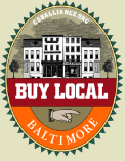Medication Disposal

Recently my family and I have been faced with the unfortunate decision to move my grandmother into an Assisted Living Community, based on her increasing battle with Dementia. In addition to many other things, one of my jobs has been to find a place to dispose of her unused prescriptions and over-the-counter medications — which had probably been mounting for quite some time. Based on a few conversations and reading a few disheartening articles (one which came from Johns Hopkins ), the consensus seems to be that one option is to dispose of unwanted medication by dumping them into the toilet.
However, with some more research, I found that this is incredibly unsafe. One reason is that septic tanks and waste treatment plants aren’t designed to remove 20th-century synthetic drugs, most of which aren’t even biodegradeable. This means that a huge percentage of this stuff is getting fed right back into our water supply; eek!! It also negatively effects surrounding ecosystems and public and private land. A common alternative and a suggestion that came from the FDA is to to mix or dilute meds with undesirable substances like kitty litter, soda, dirt or cayenne pepper and throwing them into the trash, which theoretically will deter children or household pets from accidentally harming themselves. Although I think this is better then dumping them into the toilet, it’s still contaminating the earth by potentially leaching into the ground once they’re dropped into a landfill, thus creating unknown health effects. Some suggestions that are easy and might engage the public more on this issue:
1. First, see if the medication has a label for advice on disposal. This is usually done because of concerns with illegal uses, overdoses or human or animal contamination.
2. Call your doctor to talk about taking back unused medication.
3. See if there is a take-back program in your community.
Call local pharmacy
Call trash service
Call local hospital or Medical Center
4. Donate to a developing country. One example is the Starfish Project .
5. Donate locally. Kansas has a new law that lets mail-order pharmacies, nursing homes and other medical facilities donate unused drugs, which is producing a windfall for the state’s safety-net clinics. Why not get one of these passed in your state?
6. Make sure that you absolutely need the medication which is prescribed. There seems to be a drug for everything these days, which often can be exchanged for a healthy diet and exercise. Other avenues may include the explosion of research into alternative medicine or aromatherapy. Modern medicine has made great strides, but must also be used in moderation. If this is ignored we run the risk of unintentionally contaminating ourselves and the life which surrounds us.
6. See if your town’s Hazardous Waste Day accepts medications. These can sometimes be incinerated — also not ideal, but probably better than flushing.
7. Remember: never flush medication down the toilet.
8. Check out this movie called Beyond The Call . It’s a documentary about the adventures of three determined American men who travel far and wide to bring alternative energy and safe, unused or take-back medication to the developing world. A beloved mentor and friend, Walt Ratterman, is a featured subject of this film.





 View the dynamic, moving GOforChange: Greening Baltimore video
View the dynamic, moving GOforChange: Greening Baltimore video

Comment by Janice Romanosky on 20 April 2009:
This is an incredibly timely post. NPR aired a story today as a prelude to a PBS show running tomorrow evening. The interview included lengthy commentary on the problem with current filtration technology which is inadequate to remove seemingly benign substances from the water supply, and the resulting effects on aquatic life. Here’s an email I received from CBF about tomorrow’s show:
“Tomorrow night on PBS, Frontline will air a two-hour documentary film chronicling the decline of our Chesapeake Bay and of Puget Sound. The documentary was produced by a Pulitzer Prize winning journalist over the course of a year and a half.
You can watch the trailer at PBS’s Website:
http://www.pbs.org/wgbh/pages/frontline/poisonedwaters/
“I urge you to watch the show. I have seen several segments from it, and the show covers the very issues we have been working on together. Having our story on the national airwaves is a huge opportunity to increase the public’s understanding of why Saving the Bay is so important.”